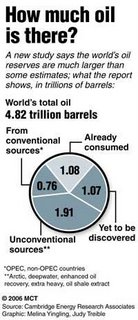Do Economists Agree on Anything?
Do economists agree on anything? Yes, according to a paper by Wake Forest University economist Robert Whaples in a paper titled "Do Economists Agree on Anything? Yes!" In general, economists strongly favor free trade, outsourcing, vouchers and legalizing marijuana, and they strongly oppose tariffs, subsidies for farmers and professional sports teams.
See the repsonses here to a list of questions posed to economists who are members of the American Economic Association, and their responses:
90.1% of economists oppose restrictions on employers outsourcing work overseas
87.5% of economists oppose tariffs and other barriers to trade
85.3% of economists say that the gap between Social Security funds and expenditures is unsustainable if nothing is done
85.2% of economists are opposed to subsidies for professional sports teams
85.2% of economists say we should end agricultural subsidies
69.2% of economists agreed that parents in poorly-performing schools should be given educational vouchers
62.2% of economists said the US should legalize marijuana
Also, see Greg Mankiw's post on this topic here.

















